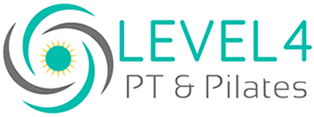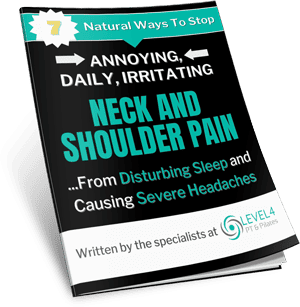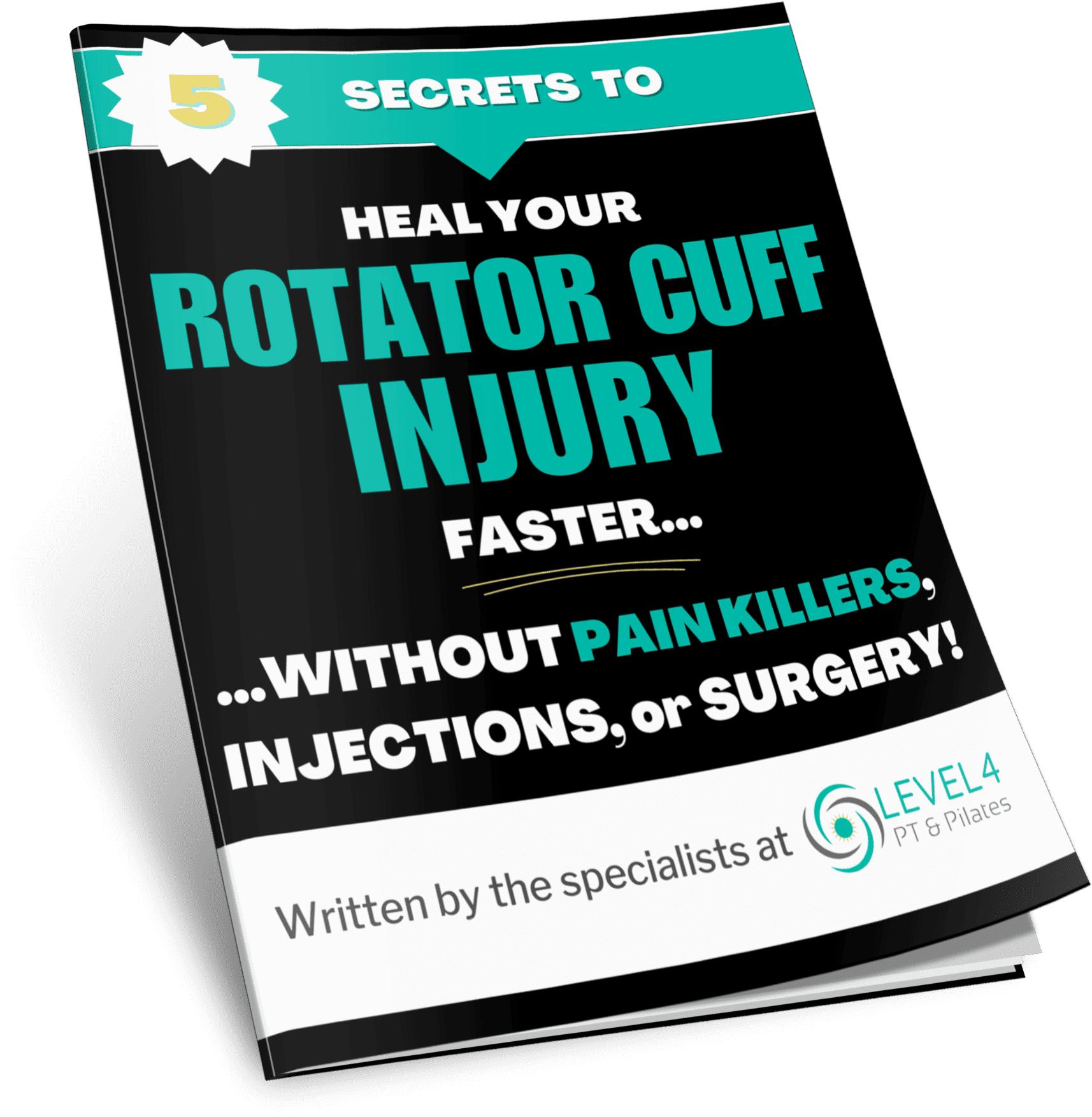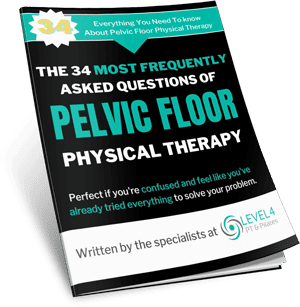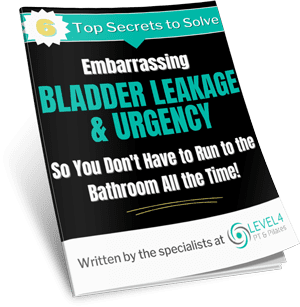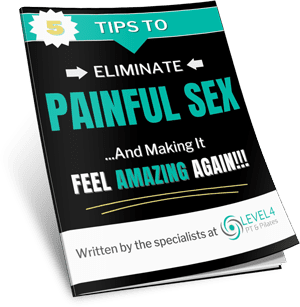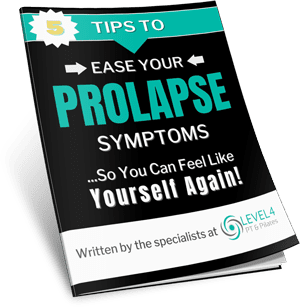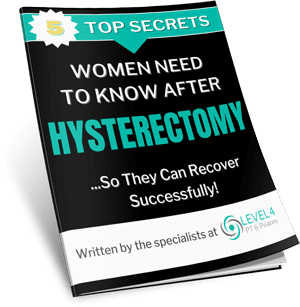
After the birth is over, and your child has been born, you have surely passed the worst discomfort that pregnancy can throw at you.
Right?
However, this is not always the case. Some women have more tenderness and irritation coming their way – in the form of postpartum back pain.
The physical changes that cause lower back pain during pregnancy can often elongate the back ache for considerable time. New mothers can suffer from postpartum back pain for months. Some poor souls can agonize with lower back torment for years after birth has taken place.
More Blogs From Level4 PT & Wellness
How Physical Therapy Helps With Post-Hysterectomy Pain
Is Lower Back Pain Normal During Pregnancy?
Why Can’t I Control My Bladder?
Chances are, if you have landed on this blog page, then you are looking for answers and solutions. Going about your daily life while enduring postpartum back pain is no laughing matter, and the chronic discomfort can severely impact your social and family life.
It could be the factor that’s preventing you from going back to work. It could be affecting your sex life, or causing mental health issues. Turning to painkillers for quick relief only masks the problem, and such a path can actually lead to a dependance on prescription drugs – which is far from good for you.
So, let’s delve in and help you reduce that postpartum back pain that you may be feeling.
How Come My Back Hurts So Much After Giving Birth?

Lower back pain is one of the most common ailments throughout the pregnancy period. While pregnant, your body goes through a range of physical changes that put extra pressure on the muscles in the lower back.
These same changes could be what’s causing your postpartum back pain or, at least, contributing to it.
For example, as your pregnancy developed, your uterus will have stretched and eventually weakened your abdominal muscles. This will have changed your posture and caused stress on your lower back.
This strain from the extra weight (alongside the stresses of giving birth) causes a build-up of pressure and tension on your joints, too. Not to mention the constant altering hormonal balance which has an impact on ligaments, muscles, and joints.
For some women, these symptoms don’t dissolve into the ether purely because the baby has now arrived. In fact, you use muscles that you haven’t used before when giving birth, and it’s common to feel these effects for quite some time afterwards. Especially if it was a difficult labor.
Once through labor, other factors can cause back issues during the postpartum period. Many new moms can inadvertently worsen their posture while breastfeeding as they focus on allowing their newborn to ‘latch on’ correctly.
This action (constantly looking down) usually causes a hunch, which increases the risk of straining back and neck muscles. Persistent postpartum back pain is more likely if you’ve had back pain that developed early on in pregnancy.
Then there’s the tiredness that new moms have to live with. Taking full-time responsibility for a newborn is far from tranquil and easy, and finding time to recover and rest those aching muscles is largely impossible. Being overweight also increases the risk of chronic pain on your joints.
We are often asked about the length of time that postpartum back pain lasts, although the answer varies depending on individual and circumstances. In most cases, the lower back pain will slowly recover over a matter of months.
Some women can suffer for far longer than that, will full recovery not always possible without assistance from a healthcare professional.
What Can I Do To Help My Back Pain?

If your back pain persists, we would suggest that you speak with a physical therapist. They can work with you to find the root source of your discomfort, and evaluate your condition should further treatment be needed.
There are some gentle exercises and home remedies you can perform to help deal with back pain, too. While we totally understand that moving around is the last thing you feel like doing when dealing with chronic back pain, it’s actually what your body needs.
Walking is a great way to gently exercise your back muscles, so long as you keep a comfortable pace and start by keeping walks short. You can build up to longer walks as time goes on, instead of pushing yourself too hard and making your condition worse.
You can start going for gentle walks as soon as you feel able, depending on the advised recovery time after labor has finished. Once walking has made a positive impact on your postpartum back pain, you may wish to consider some pelvic tilts, or focus on sympathetic back/abdominal exercise routines.
This is where Yoga can make a big difference. Once again, you need to take this gently – at least to start with. Yoga works wonders on ligaments and joints, and also provides you with some mental breathing space.
Take things slowly and avoid trying more intense positions, as this can cause over-stretching, which will inflame all aspects of lower back pain. Listen to your body. If it feels too painful or uncomfortable, then stop. You don’t want to cause any further damage.
More Things You Can Do To Help Your Back Pain

Besides taking the time for gentle exercise, and speaking with a physical therapist, certain aspects from everyday life can be utilized to combat chronic postpartum back pain.
Firstly, ensure that you keep a strong posture. Try not to slouch when sitting, and always stand up straight.
Pay attention to how you are positioned when feeding your newborn child, regardless of whether that involves breastfeeding or bottle-feeding. Try to use a chair or couch that can support you properly, and use armrests where available. This will help to support your lower back and keep discomfort to a minimum.
It may sound really simple but, when breastfeeding, always raise your newborn towards your breast. Hunching towards your baby will only add to the tendency for pain in your back muscles.
If nursing brings about discomfort or a feeling of tensity in your shoulders, try some different breastfeeding positions. You can find different positions here, but for lower back pain relief we’d recommend a position where you rest on your side.
Even More Things You Can Do To Help Your Postpartum Back Pain

Children make a mess. There’s no getting around it. From strewn foodstuffs, to dropped toys, and everything in between, your floor is likely to become a dumping ground. And, naturally, you’ll feel inclined to pick objects up and clean the floor where necessary.
If you went through a c-section procedure, DO NOT do the heavy lifting. Get your partner or someone to help, and avoid strenuous lifting altogether as this can cause serious injury. Let someone else take the strain, where possible!
Always bend your knees – especially when lifting children up. Do not rely solely on your back, and use your leg muscles to stand back up, as this minimizes any stresses on the muscles in your lower back.
Self-care For Postpartum Back Pain

Ok. So you’ve managed to hurt your back – what can you do?
Taking care of yourself is very important while dealing with any effects of postpartum. However, trying to ease the tension in your muscles and rest your joints isn’t always easy. As a new parent, you are constantly on the move!
When trying to deal with lower back pain, try to opt for a heat pad rather than depending on painkillers. Use a towel or flannel to protect your skin, and apply a heat pad (or a cold pack, depending on what you feel will work best) to the area in pain.
Try to learn some relaxation methods. A massage is an excellent way to soothe aching muscles and relieve tension in your lower back. If you don’t have someone around to administer a massage, a long soak in a warm bath can also work wonders on postpartum lower back pain – especially at night before bed.
Physical Therapy For Postpartum Back Pain

We specialize in Women’s Health, Pelvic Floor Physical Therapy, and Postpartum Back Pain at Level 4 PT & Wellness. Our Physical Therapists can help you find effective pain relief, even if it’s been years since you gave birth.
We work with women in all stages of pregnancy and postpartum, also working with women going through the physical changes associated with Perimenopause and menopause; treating everything from Pelvic Organ Prolapse and Diastasis Recti, incontinence, and chronic constipation to Postnatal Back Pain and Painful Sex.
Why not book a free call with one of our Women’s Health Specialists?
We offer this complimentary 30-minute call to all new patients.
It’s a chance for you to talk about your pregnancy or postnatal-related issues in confidence and find out how we can help before you commit to booking an appointment.
If you prefer, you can choose to visit the Encinitas clinic instead for a 30-minute Discovery Visit – and meet your PT in person.
Don’t feel like you cannot approach this subject with us. You have nothing to feel embarrassed about. Postpartum back pain does not make you a freak of nature. It’s a very common ailment, and one that we can help you with.
- How Pilates Strengthens Your Pelvic Floor & Improves Core Health - February 24, 2025
- Common Pelvic Floor Struggles & How to Fix Them - February 18, 2025
- 5 Common Myths About Back Pain in Women (And the Truth!) - January 31, 2025
